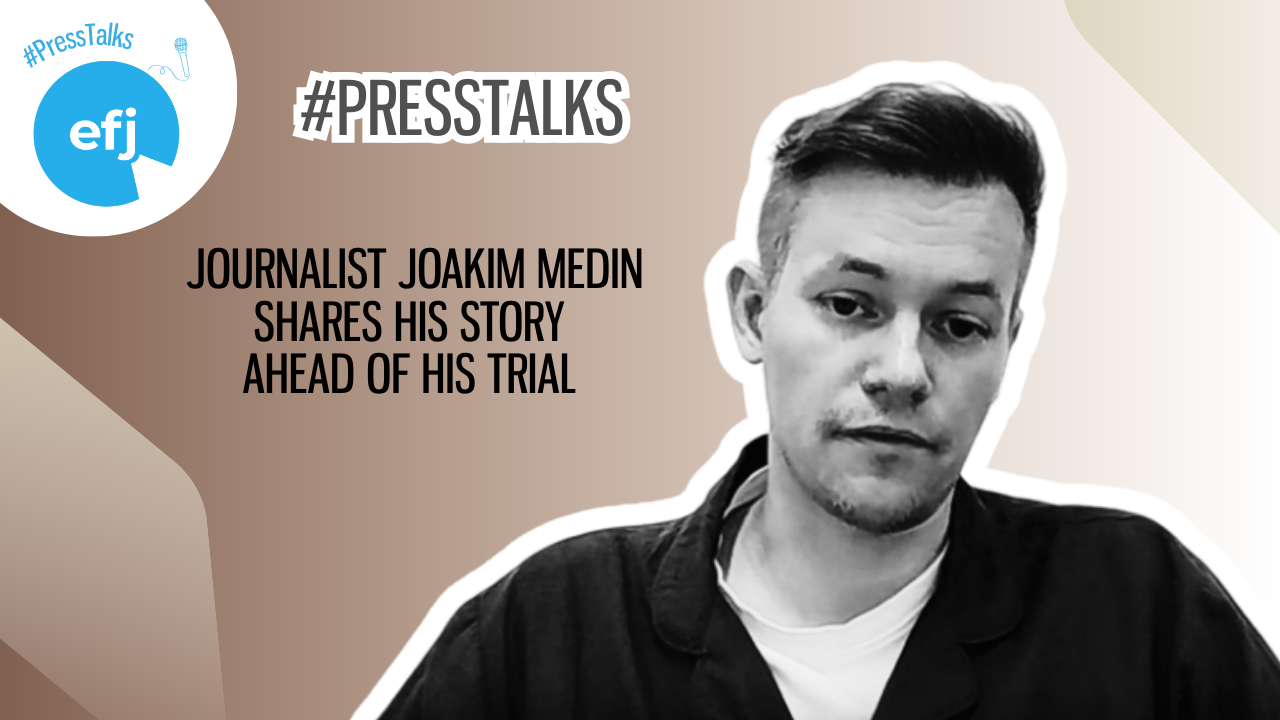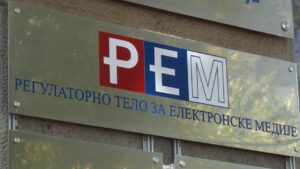In a new “#PressTalks” episode, Swedish foreign reporter Joakim Medin for the newspaper Dagens ETC shares his story as a journalist imprisoned for 51 days in a Turkish prison on terrorism charges.
Joakim is a member of the Swedish Union of Journalists (SJF) and benefitted from strong international support during his detention. This mobilisation certainly played a part in his release, as he was eventually able to return to Sweden on 17 May while awaiting trial, just in time for the birth of his first child.
We talked to Joakim as he prepares for his first hearing, scheduled on 25 September. He faces up to nine years in prison on alleged terrorism charges – a clear retaliation for his reporting on Turkey and coverage of the civil war in Syria.
Medin was arrested on 27 March in Istanbul, where he had travelled to cover the massive protests following the arrest of main opposition figure Ekrem İmamoğlu. Medin was accused of insulting the President, being a member of a terrorist organisation, and spreading “terrorist propaganda”.
In this podcast, the journalist recounts his living conditions at Marmara High Security prison, where he was held in social isolation in the department for political prisoners, and speaks about the burden of the ordeal as he rebuilds his life in Sweden with his family.
“The fact that we don’t know what’s going to happen is making us worry. We know it will affect our lives in the future.”
He remains unsure whether he will be able to present his defense in a Swedish court, which does not acknowledge politically motivated trials of this nature, or if an international arrest warrant will be issued against him. However, Joakim is convinced of one thing: there will be an “after trial”, consequences on his life and career as a foreign affairs reporter.
With a long experience of covering foreign affairs news, Joakim Medin observes the deteriorating working conditions of journalists, as “democracy is facing a severe backlash” and “a large minority of countries (are) becoming tricky and dangerous to work (in) as a journalist”. Ironically, he has in the past reported on other journalists being in similar situations to the one he is in now, which is how he immediately understood that he was to be targeted for his work. While he is prepared for the possibility of being banned from Turkey and allied countries, Joakim tries to stay optimistic; he will find a way to keep reporting.
When asked for advice to young journalists starting their career and fearing similar retaliation for their reporting, Joakim Medin emphasises the importance of not giving up. “We can only respond to this by staying true to our profession, even stronger”.
Medin, a former teacher, had not anticipated a career in journalism. In the podcast, he explains how meeting a journalist in Honduras during the 2009 military coup was a profoundly life-changing experience that propelled him into journalism. “I wouldn’t consider doing anything other than journalism. It’s a profession playing a crucial part in democracy, which comes with a lot of power, but also a lot of responsibility, with media workers at the front line of fundamental rights and freedom, and ultimately of democracy”.
The European Federation of Journalists (EFJ), together with the Swedish Union of Journalists (SJF), will continue to advocate for the dismissal of all charges against Joakim and all journalists who are still behind bars in retaliation for their public interest reporting in Turkey.
To echo Joakim’s words: “Journalism is not a crime, and it should never be treated as one in any country”.
Source: EFJ




